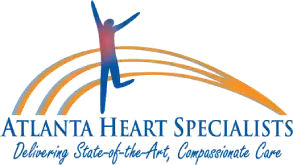Cardiac Arrest
What is Cardiac Arrest?
Cardiac arrest is a malfunction of the heart’s electrical system, which causes the heart to beat irregularly. Cardiac arrest is a true medical emergency that can come on suddenly and result in death quickly; however, the condition may be reversible if life-saving measures are implemented right away.
A multitude of cardiac problems and, in some cases, a family history can play a role in the risk of experiencing a cardiac arrest. Ventricular fibrillation is one of the most common arrhythmias associated with cardiac arrest and is characterized by the lower chamber of the heart suddenly beating erratically. In many cardiac arrest cases, the individual is unaware that they have a heart condition.
Causes & Symptoms of Cardiac Arrest
Cardiac arrest can occur due to various factors, often related to heart rhythm disturbances and underlying health conditions. Despite sudden onset, there are some telltale signs that indicate cardiac arrest, which can appear up to two weeks before a significant event takes place. Leading up to the event, the person may feel some chest discomfort, shortness of breath, weakness, and a fluttering or fast-beating heart. Men typically experience chest pain, while women commonly report shortness of breath.
Recognizing risk factors and symptoms, maintaining heart health, and receiving prompt medical attention are vital for reducing the risk of cardiac arrest and enhancing overall well-being.
Causes of Cardiac Arrest
- Ventricular fibrillation
Ventricular fibrillation is the most common cause of cardiac arrest. It occurs when the heart's electrical signals become chaotic, causing the heart's lower chambers (ventricles) to quiver instead of pumping blood effectively. - Ventricular tachycardia
Ventricular tachycardia is a rapid heartbeat originating in the ventricles. When sustained, it can lead to cardiac arrest if not promptly treated. - Heart attack (Myocardial Infarction)
A heart attack occurs when blood flow to a part of the heart muscle is blocked, leading to damage. Severe heart attacks can trigger cardiac arrest due to the disruption of the heart's electrical system. - Electrolyte imbalances
Imbalances in electrolytes, such as potassium and magnesium, can disrupt the heart's electrical signals and trigger cardiac arrest. - Drug overdose
Certain medications or recreational drugs can interfere with the heart's rhythm, potentially leading to cardiac arrest. - Congenital Heart Conditions
Some individuals are born with structural heart abnormalities that can increase the risk of cardiac arrest, especially if these conditions lead to abnormal heart rhythms. - Hypertrophic Cardiomyopathy
This condition involves the thickening of the heart muscle, which can disrupt electrical signals and increase the risk of abnormal heart rhythms. - Long QT Syndrome
This inherited condition affects the heart's electrical system, causing rapid and chaotic heartbeats that can lead to cardiac arrest. - Brugada Syndrome
Another inherited condition, Brugada syndrome, can cause irregular heartbeats that may result in sudden cardiac arrest. - Trauma
Severe trauma, such as a strong blow to the chest, can lead to cardiac arrest.
Symptoms of Cardiac Arrest
- Sudden loss of consciousness
The hallmark symptom of cardiac arrest is a sudden loss of consciousness. The affected individual may collapse without warning, often becoming unresponsive and non-reactive. - Absence of breathing
During cardiac arrest, breathing stops or becomes extremely irregular. The person may not be breathing at all or may exhibit gasping, shallow, or irregular breaths. - Lack of pulse
When checking for a pulse in a person experiencing cardiac arrest, you may not be able to detect one. The heart's pumping activity has ceased, leading to the absence of a palpable pulse. - Other signs and symptoms
While the sudden loss of consciousness, lack of breathing, and absence of a pulse are the most prominent signs of cardiac arrest, there are often no warning symptoms or clear indicators before the event occurs. However, some individuals may experience chest discomfort, shortness of breath, dizziness, or palpitations shortly before cardiac arrest, especially if an abnormal heart rhythm is present.
Testing & Diagnosis for Cardiac Arrest
Cardiac arrest is diagnosed based on the observation of key symptoms. If a person is witnessed to suddenly collapse and become unresponsive with no breathing or pulse, cardiac arrest should be assumed. CPR should be initiated immediately while emergency services are contacted. Paramedics will utilize ECG monitoring to identify the heart rhythm causing the arrest and deliver appropriate treatment.
To understand the cause and severity of a cardiac arrest event, your doctor may order several different tests, to determine the cause of the cardiac arrest. The doctor may order diagnostic tests to confirm cardiac arrest and to rule out other possible causes of the symptoms. These tests may include:
- Electrocardiogram (EKG)
This test measures the electrical activity of the heart. An abnormal EKG can be a sign of cardiac arrest. - Chest X-ray
This test can show the size and shape of the heart, as well as any fluid buildup in the lungs. - Echocardiogram
This test uses sound waves to create images of the heart. An echocardiogram can show any damage to the heart muscle or valves. - Blood tests
Blood tests can be used to check for heart damage, as well as other conditions that may have caused the cardiac arrest.
Treatments for Cardiac Arrest
The goal of treatment for cardiac arrest is to restore blood flow to the brain and other vital organs as quickly as possible. This is usually done with cardiopulmonary resuscitation (CPR) and defibrillation.
CPR is a combination of chest compressions and rescue breaths that help to keep the blood flowing to the brain and other organs until defibrillation can be performed. Defibrillation is a procedure that uses an electric shock to restart the heart. If cardiac arrest is not treated immediately, it can be fatal. However, with prompt treatment, patients can increase their chance of survival.
Photo Gallery
Video Gallery
Testimonials
Photo Gallery
Meet Your Cardiovascular Specialists
In Search of Care? Request a Consultation Today



